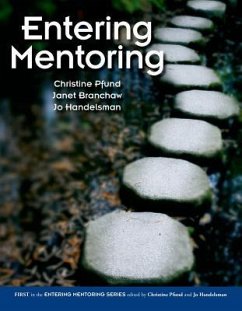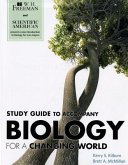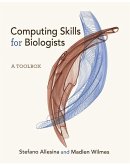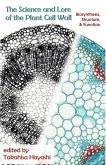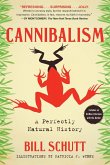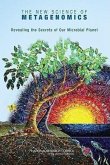- Broschiertes Buch
- Merkliste
- Auf die Merkliste
- Bewerten Bewerten
- Teilen
- Produkt teilen
- Produkterinnerung
- Produkterinnerung
Tailored to the primary mentors of undergraduate researchers in any STEM discipline, Entering Mentoring is designed for those who wish to implement mentorship development programs for academic research.
Andere Kunden interessierten sich auch für
![Scientific American Biology for a Changing Word Scientific American Biology for a Changing Word]() Kerry S. KilburnScientific American Biology for a Changing Word38,99 €
Kerry S. KilburnScientific American Biology for a Changing Word38,99 €![Computing Skills for Biologists Computing Skills for Biologists]() Stefano AllesinaComputing Skills for Biologists56,99 €
Stefano AllesinaComputing Skills for Biologists56,99 €![The Science and Lore of the Plant Cell Wall The Science and Lore of the Plant Cell Wall]() Takahisa HayashiThe Science and Lore of the Plant Cell Wall33,99 €
Takahisa HayashiThe Science and Lore of the Plant Cell Wall33,99 €![The Thebaid The Thebaid]() Publius Papinius StatiusThe Thebaid35,99 €
Publius Papinius StatiusThe Thebaid35,99 €![Cannibalism Cannibalism]() Bill SchuttCannibalism16,99 €
Bill SchuttCannibalism16,99 €![The New Science of Metagenomics The New Science of Metagenomics]() National Research CouncilThe New Science of Metagenomics57,99 €
National Research CouncilThe New Science of Metagenomics57,99 €![A Many-Colored Glass: Reflections on the Place of Life in the Universe A Many-Colored Glass: Reflections on the Place of Life in the Universe]() Freeman J. DysonA Many-Colored Glass: Reflections on the Place of Life in the Universe13,99 €
Freeman J. DysonA Many-Colored Glass: Reflections on the Place of Life in the Universe13,99 €-
-
-
Tailored to the primary mentors of undergraduate researchers in any STEM discipline, Entering Mentoring is designed for those who wish to implement mentorship development programs for academic research.
Produktdetails
- Produktdetails
- Verlag: W. H. Freeman
- Revised edition
- Seitenzahl: 144
- Erscheinungstermin: 31. Januar 2015
- Englisch
- Abmessung: 269mm x 211mm x 10mm
- Gewicht: 386g
- ISBN-13: 9781464184901
- ISBN-10: 1464184909
- Artikelnr.: 49380608
- Verlag: W. H. Freeman
- Revised edition
- Seitenzahl: 144
- Erscheinungstermin: 31. Januar 2015
- Englisch
- Abmessung: 269mm x 211mm x 10mm
- Gewicht: 386g
- ISBN-13: 9781464184901
- ISBN-10: 1464184909
- Artikelnr.: 49380608
Christine Pfund, PhD, is a researcher with the Wisconsin Center for Education Research at the University of Wisconsin-Madison (UW). Dr. Pfund earned her PhD in Cellular and Molecular Biology, followed by postdoctoral research in Plant Pathology, both at University of Wisconsin-Madison. For almost a decade, Dr. Pfund served as the Associated Director of the Delta Program in Research, Teaching, and Learning and the codirector of the Wisconsin Program for Scientific Teaching, helping to train future faculty to become better, more effective teachers. Dr. Pfund is now conducting research with several programs across the UW campus, including the Institute for Clinical and Translational Research and the Center for Women's Health Research. Her work focuses on developing, implementing, documenting, and studying research mentor-training interventions across science, technology, engineering, mathematics, and medicine (STEMM). Dr. Pfund coauthored the original Entering Mentoring curriculum and coauthored several papers documenting the effectiveness of this approach. Currently, Dr. Pfund is coleading two studies focused on the impact of training on both mentors and mentees and understanding specific factors in mentoring relationships that account for positive student outcomes. Janet Branchaw is the Director of the Institute for Biology Education at the University of Wisconsin-Madison. She earned her BS in Zoology from Iowa State University and her PhD in Physiology from the University of Wisconsin-Madison. After completing postdoctoral research training and a lectureship in undergraduate and medical physiology at the University of Wisconsin-Madison's School of Medicine and Public Health, Dr. Branchaw joined the Institute for Biology Education. Her scholarship and program development expertise are in the areas of research mentee and mentor professional development and in the development and evaluation of interventions designed to support the success of first-generation, underrepresented minority and socioeconomically disadvantaged students. She is the lead author on the Entering Research curriculum and has led two National Science Foundation-funded undergraduate research programs to prepare diverse populations of students for graduate education: a ten-week summer Research Experiences for Undergraduates program that hosts students from around the country, and a three-year Undergraduate Research and Mentoring program. She leads the University of Wisconsin-Madison's Howard Hughes Medical Institute-funded "Foundations for Success in Undergraduate Biology" program. As the Director of the cross-campus Institute for Biology Education, Dr. Branchaw oversees development of innovative educational programs in educator professional development, K-12, undergraduate and graduate education, and science outreach and community engagement. Jo Handelsman is a Howard Hughes Medical Institute Professor in the Department of Molecular, Cellular, and Developmental Biology at Yale University. She served on the faculty at the University of Wisconsin-Madison from 1985 until moving to Yale in 2010. Her research focuses on the genetic and functional diversity of microorganisms in soil and insect gut communities. She is one of the pioneers of functional metagenomics, an approach to accessing the genetic potential of unculturable bacteria in environmental samples for discovery of novel microbial products, and she recently served as President of the American Society for Microbiology. In addition to her research program, Dr. Handelsman is also known internationally for her efforts to improve science education and increase the participation of women and minorities in science at the university level. Her leadership in education led to her appointment as the first President of the Rosalind Franklin Society; her service on the National Academies' panel that wrote the 2006 report, "Beyond Bias and Barriers: Fulfilling the Potential of Women in Academic Science and Engineering"; her selection by President Barack Obama to receive the Presidential Award for Excellence in Science, Mathematics, and Engineering Mentoring; her position as cochair of a working group that produced the 2012 report to the President, "Engage to Excel: Producing One Million Additional College Graduates with Degrees in Science, Technology, Engineering, and Mathematics," about improving STEM education in postsecondary education; and Nature listing her as one of the "ten people who mattered" in 2012 for her research on gender bias in science.

